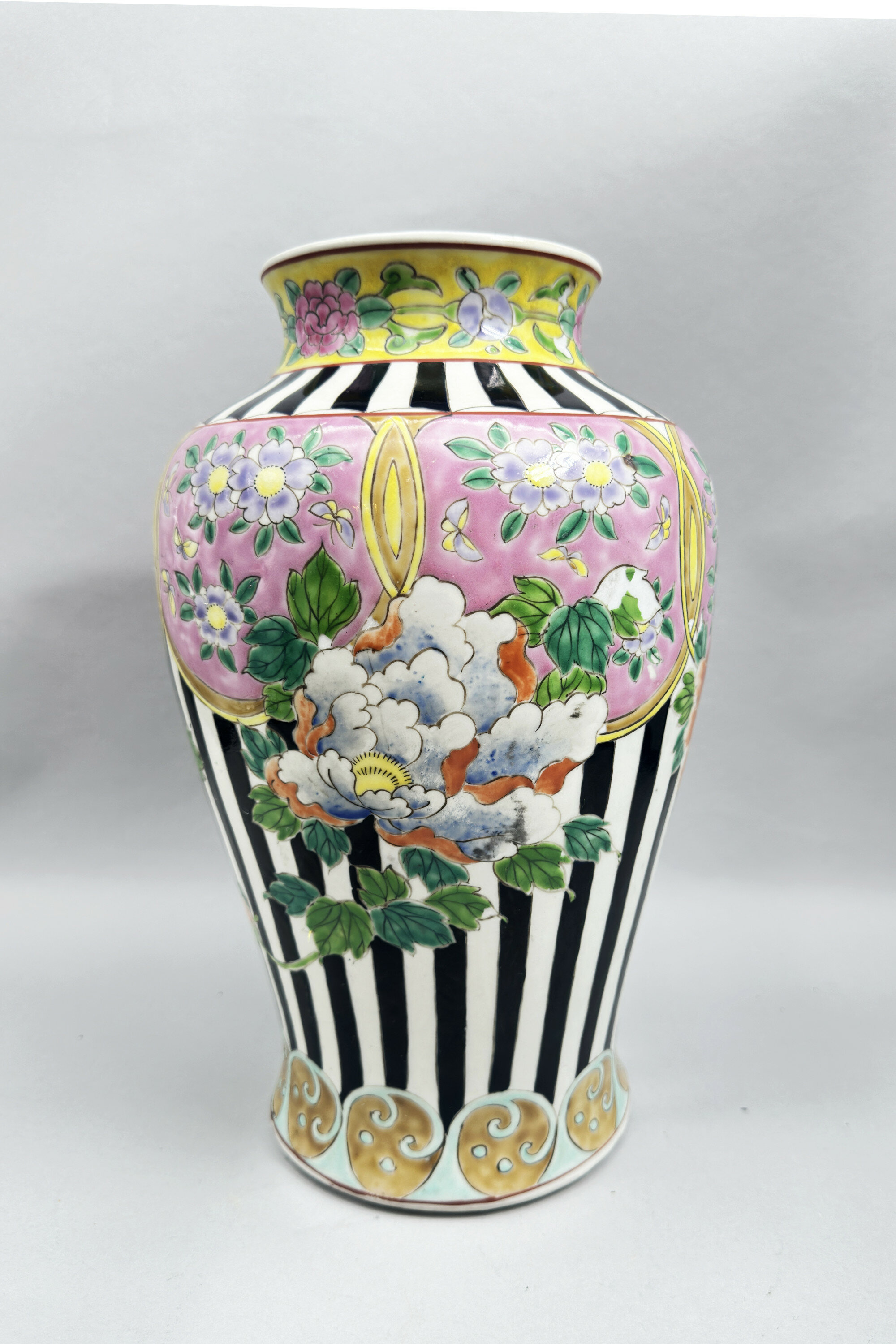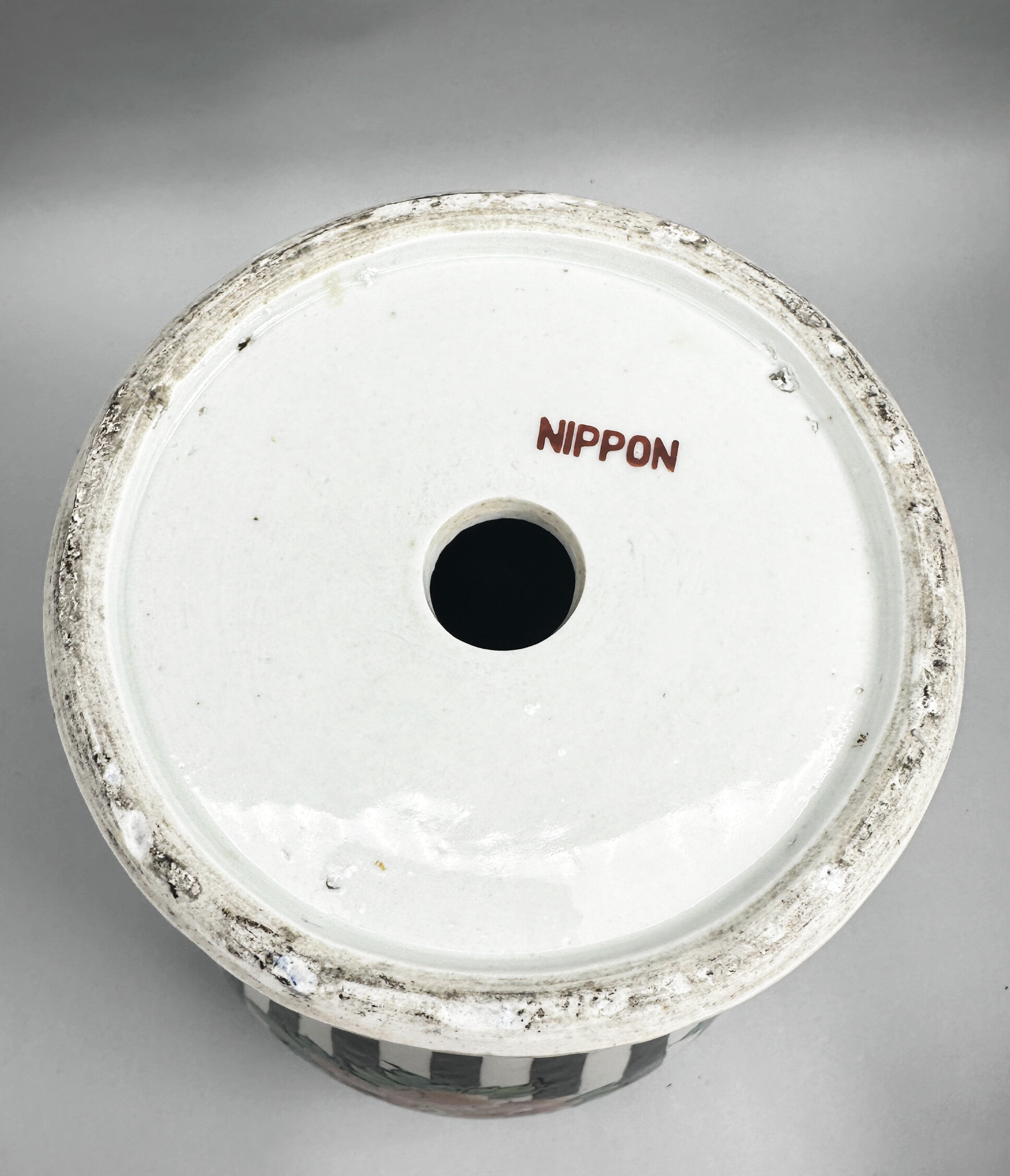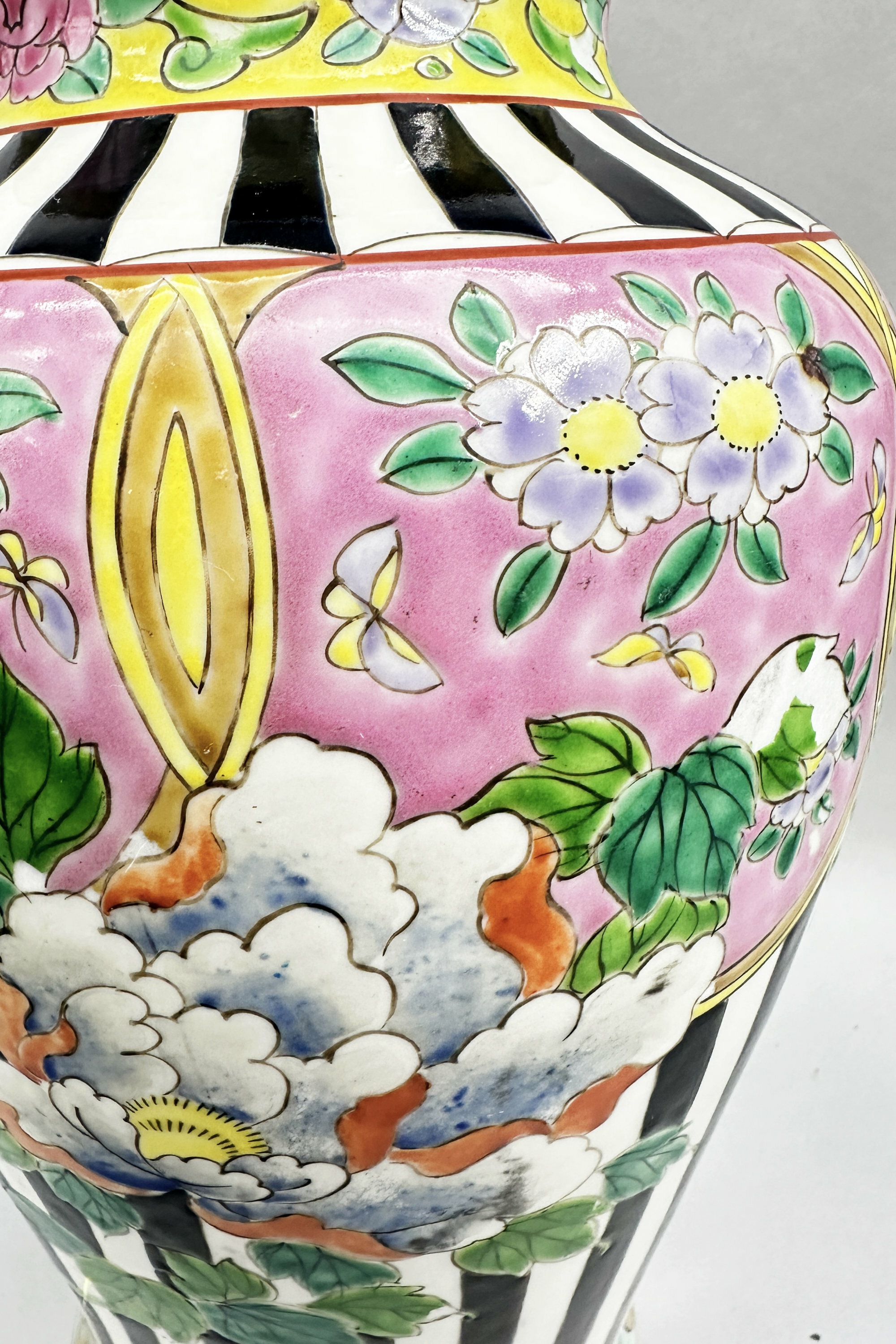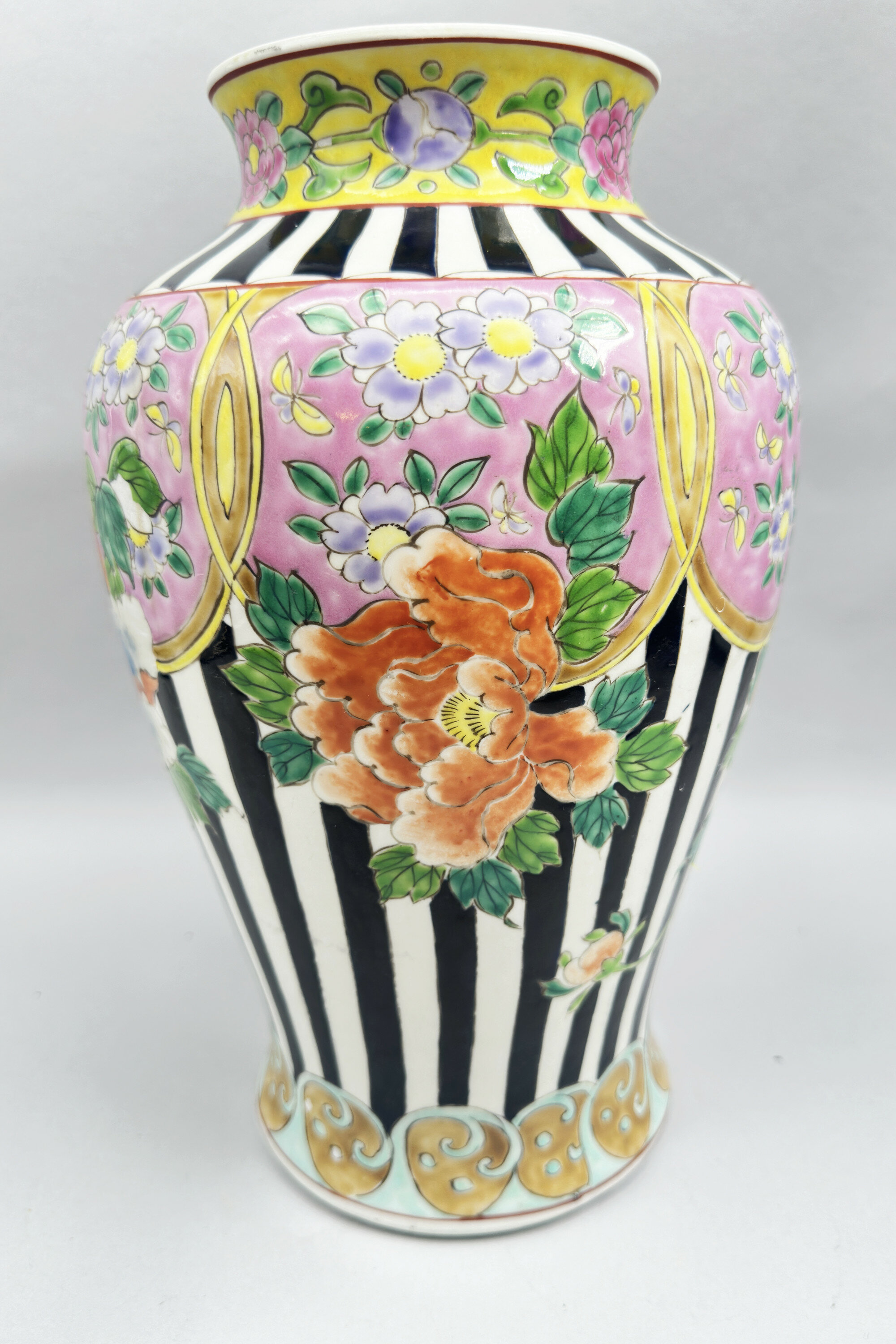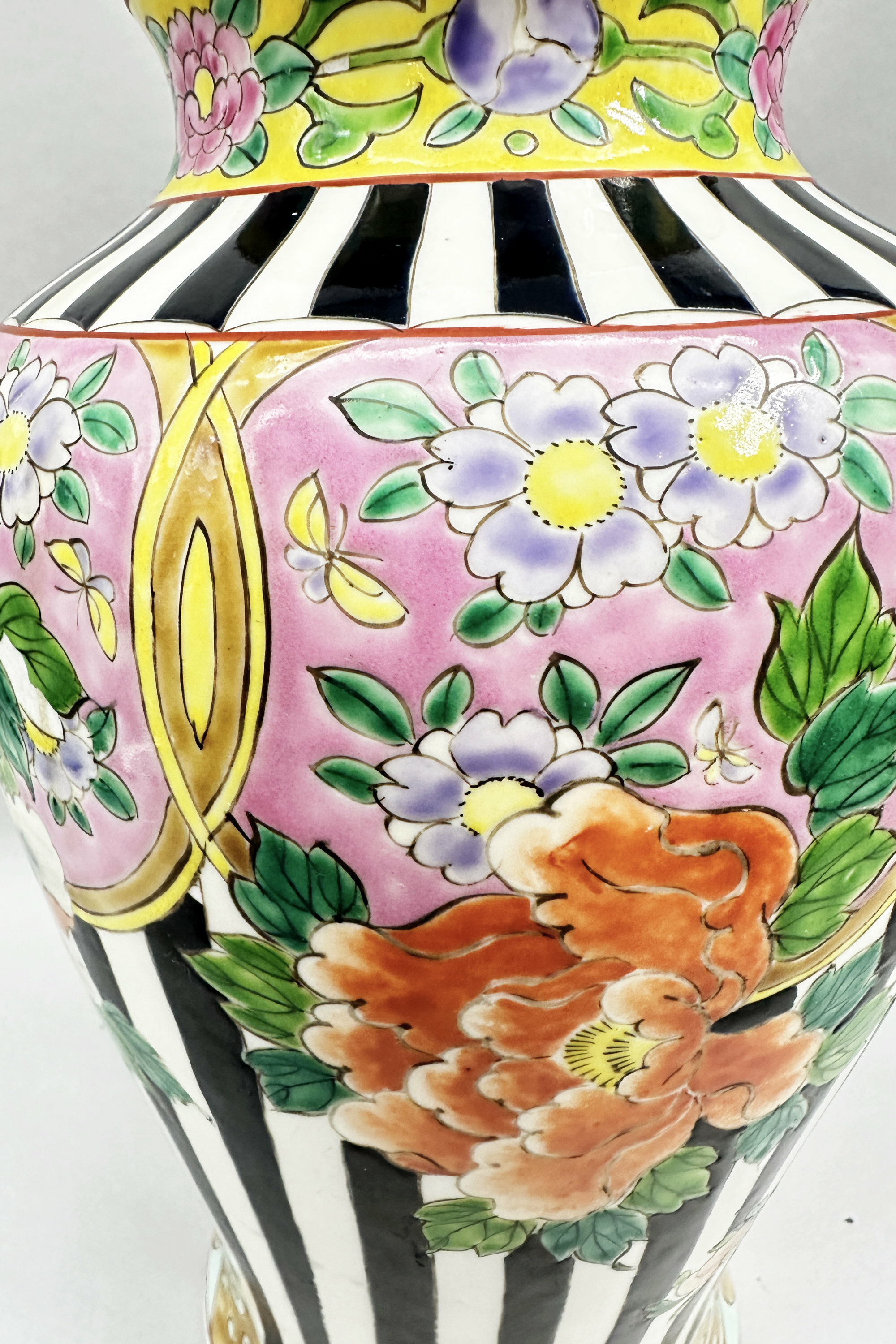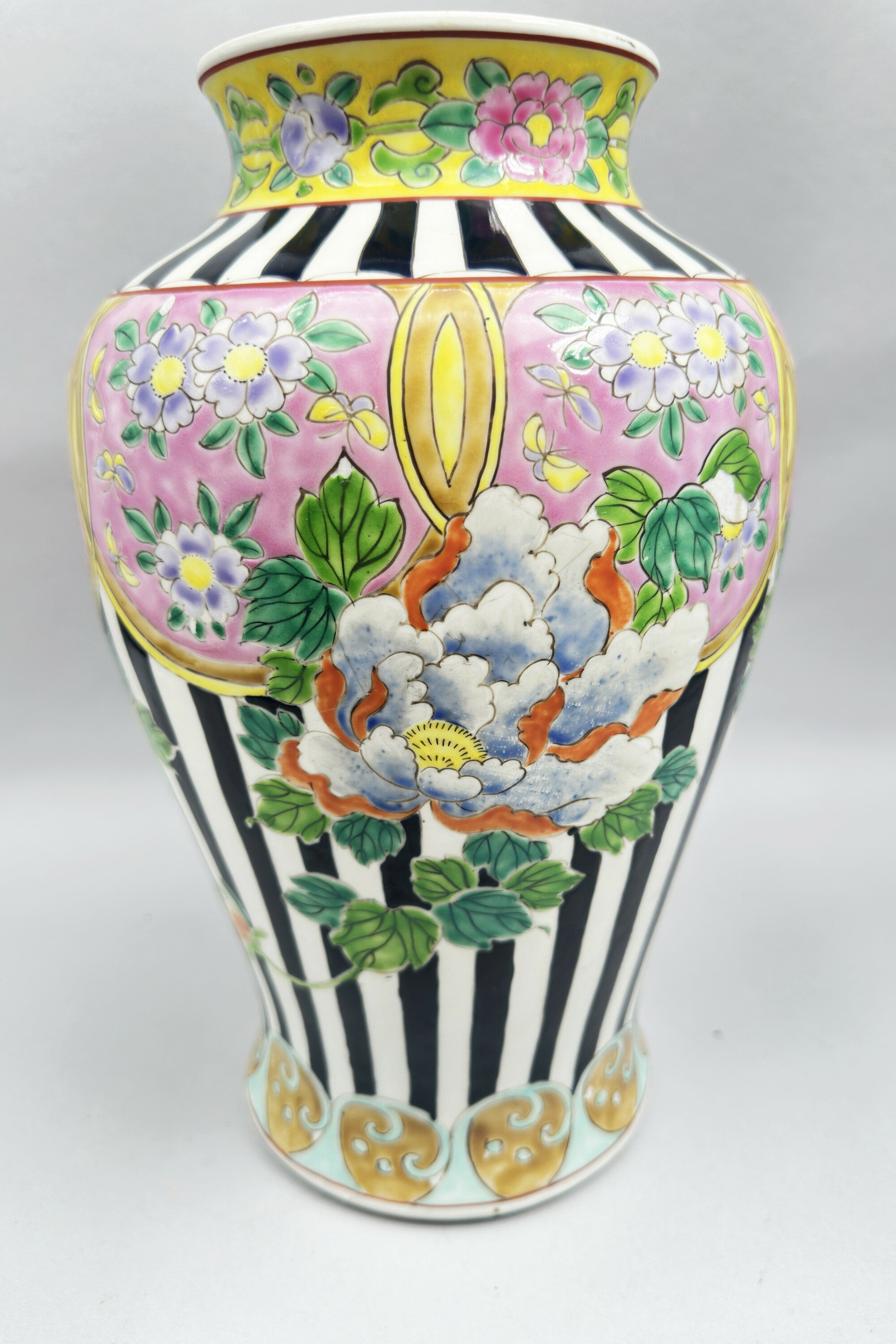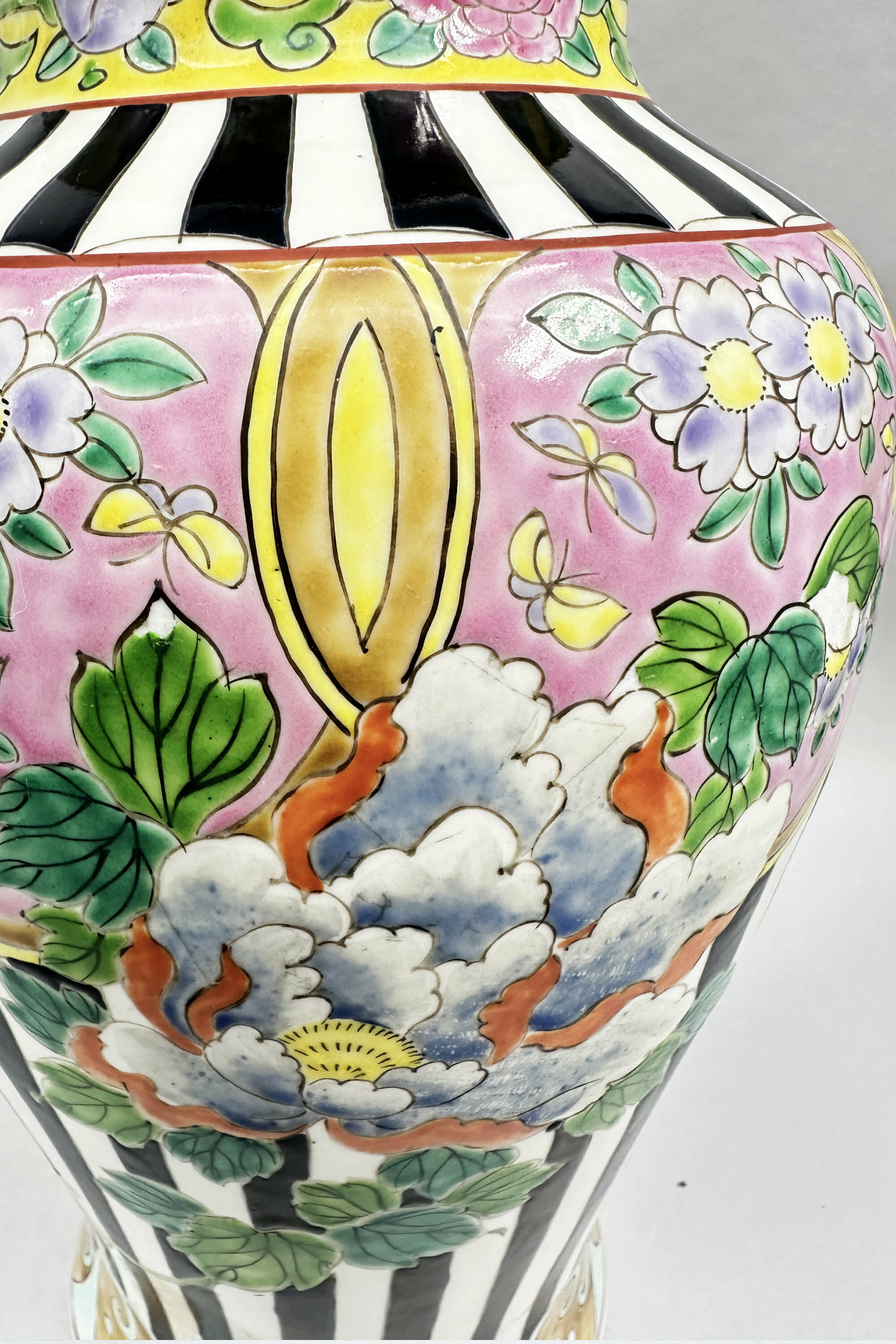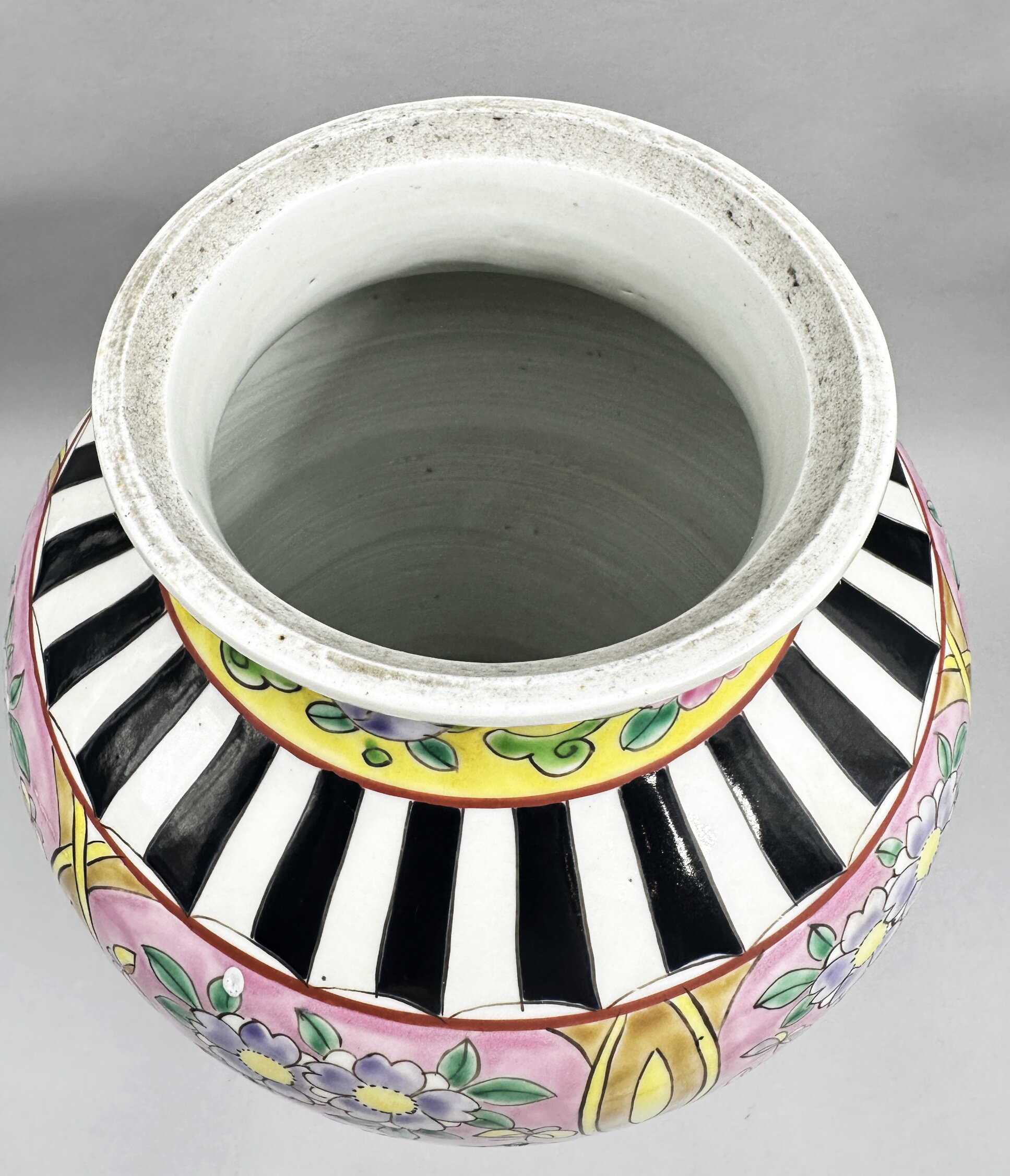Japanese Arita Vase with Famille Rose Decoration and Black Stripes, early C20th
| Current Bid: | £15.00 |
| Bid Increment: | £1.00 |
| Next Min Bid: | £16.00 |
| Buyer’s Premium: | £3.60 |
| Total Amount: | £18.60 |
| Number of Bids: | 2 |
| Location: | United Kingdom |
| Highest Bidder: | User 1410 |
| Auction Start: | 21/07/24 19:15:00 UTC |
| Auction Ending: | 04/08/24 19:12:00 UTC |
| Auction Finished : | 04/08/24 19:12:22 UTC |
Japanese Arita Vase with Famille Rose Decoration and Black Stripes, early C20th
A Japanese Arita Vase of baluster form slightly flaring towards the base and with a short concave neck unglazed at the top, the base glazed white and with a stamped mark ‘NIPPPON’, decorated in Famille Rose enamels with large peony and lotus blooms and pink ground panels of lotus, all on a black and white striped ground, the neck with a continuous floral spray of peony and lotus.In the late nineteenth century the Japanese potters at Arita turned their hand to producing pieces decorated in the Chinese ‘Famille Rose’ (rose family) palette. These were surprisingly effective and have sometimes deceived later collectors, mistakenly believing them to be Chinese. The decoration here is typical of the style but the striped ground is most unusual giving the piece a much more ‘modern’ appearance. Dating is pretty clear though. The stamped ‘Nippon’ (Japan) mark was used from around 1890 to the early 1920s. From 1891 imports to America were required to be marked with the country of origin, in western characters. Thus Japanese exports to America were marked with ‘Nippon’ in English from this date to 1922, when the requirement was changed so that the word ‘Japan’ should be used. Other countries had importing requirements too and the presence of ‘Nippon’ here is a pretty accurate pointer to the early C20th which is consistent with both the style of decoration and the paste of the foot. The unglazed top suggests that this vase originally had a matching lid. This has gone and, of course, the vase was later used as a lamp base and drilled accordingly. If reused now in the same way it would be a striking and individual lighting feature.
| Size: | 30 cm x 19 cm |
| Weight: | 1.980 kg |
| Date: | Early C20th |
| Condition: | Good condition generally; very slight flaking to the enameling in places (see image 6 for one example); has been drilled for conversion into a lamp (see image 8) |
| Estimate: | £30 – 40 |
